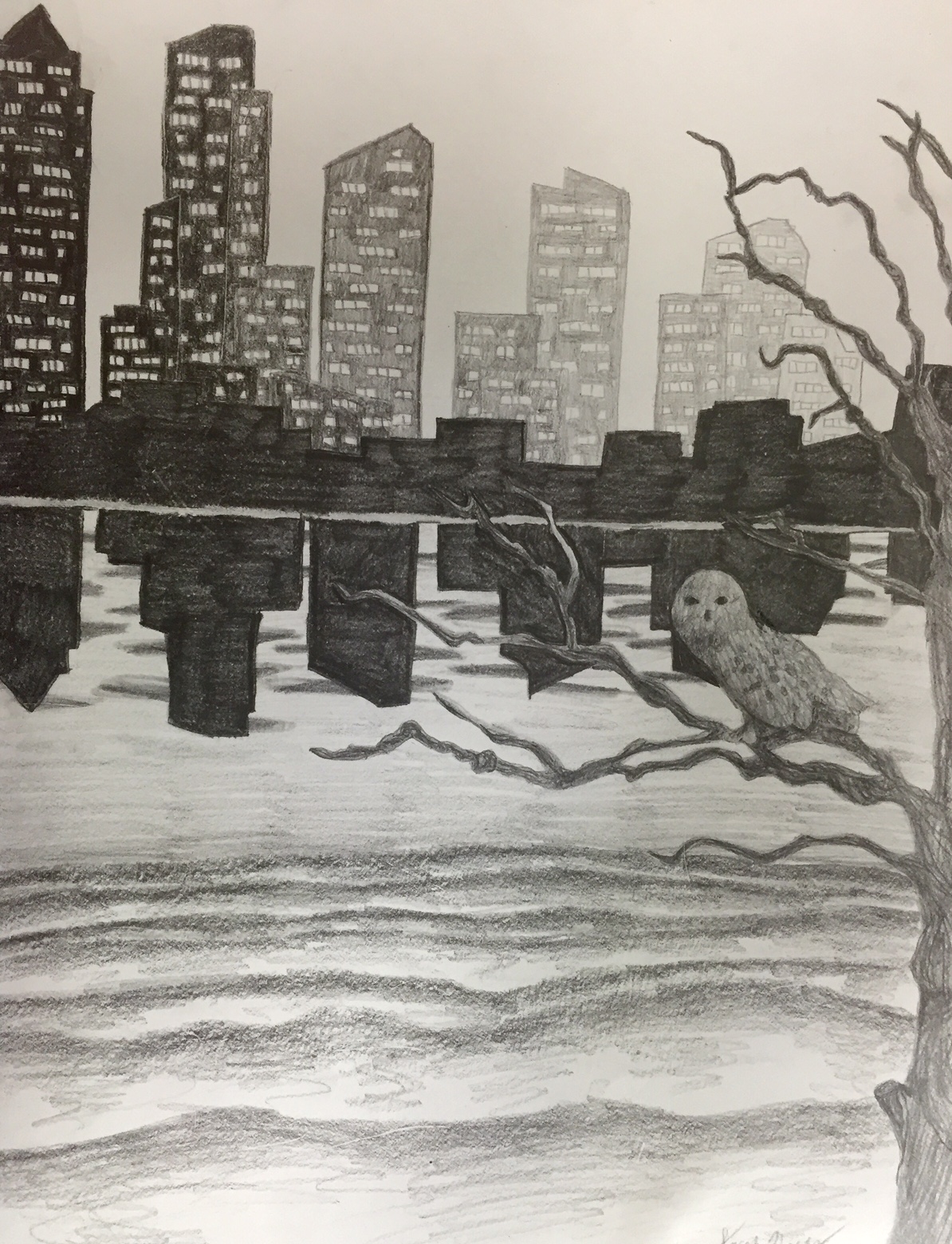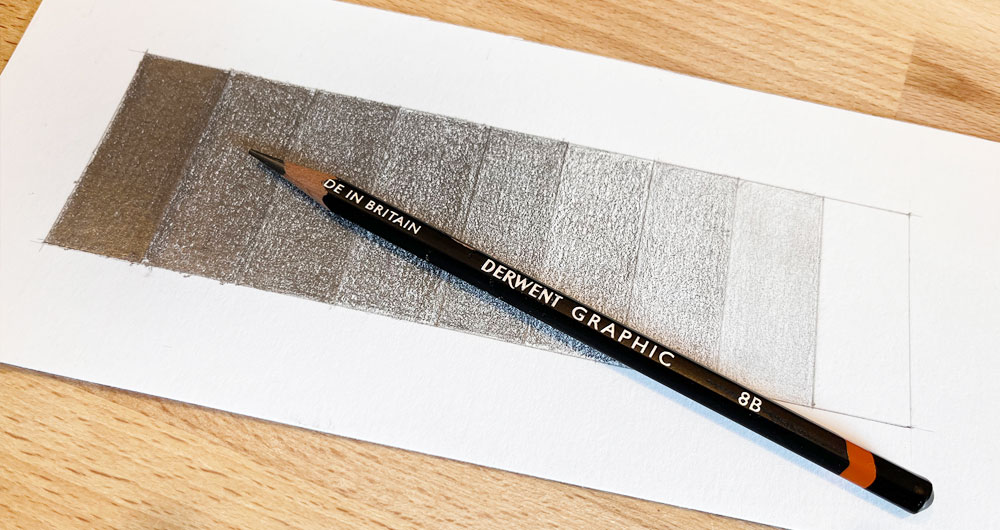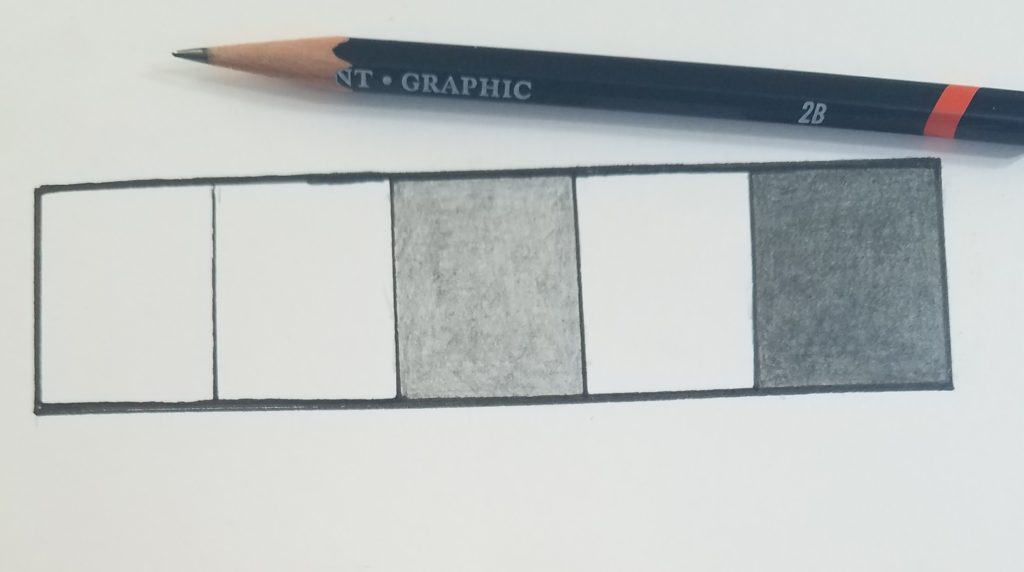Value Scale Drawing Ideas
Value Scale Drawing Ideas - The size of your grid isn’t. Decide how many values to include in your scale. The purpose is to develop and test various (usually two or three) arrangements of the main value masses—lights, midtones and darks—before selecting one arrangement to be used in the final painting. Fill in the darkest value with the darkest shade you can make with your medium. The first thing you need to do is draw out your grid for your value scale. I made a template out of cardstock, but you can also use a ruler or just draw it out freehand. Each box can be half an inch. See more ideas about art lessons, arts ed, teaching art. See more ideas about teaching art, elementary art, value in art. 5 is a good place to start. It’s the range of values between pure white and pure black, as seen on the value scale. Fill in the darkest value with the darkest shade you can make with your medium. Using the ruler and your pen, draw 9 boxes along the edge of your paper. Grab a ruler and get going! You can make yours bigger or smaller. Using a ruler, make each section roughly 1 inch by 1 inch. It can also be used as a drawing exercise to learn how to make all of the possible values that your pencil (or whatever tool you are using) can make. It includes a graduated scale from the lightest value (white) to the darkest value (black) and various gray. You can kickstart with five value scales, but you can add more in case of retries. Web color value scale template. The size of your grid isn’t. Fill in the darkest value with the darkest shade you can make with your medium. Sketch the basic values most painters use some version of the value sketch early in the planning process. Sketch the basic values most painters use some version of the value sketch early in the planning process for each new picture. Pick a medium (or several) that you like to use. Web basic information on creating a value scale (with specifics for an art 1 drawing exercise in graphite and colored pencil). At first, it looks just like a. Using the ruler and your pen, draw 9 boxes along the edge of your paper. To create a value scale, begin by drawing out a rectangle and subdividing it into 5 even boxes. I drew mine on a piece of white cardstock, which is what i will typically use for my drawings. See more ideas about art lessons, arts ed,. This lesson is an excellent way for students to experiment with different drawing pencils and learn best practices like how to hold the pencil and how to apply appropriate pressure. The overall size is about 8 inches long and about an inch wide. In my case, working with a tin of derwent academy sketching. Web value in art refers to. Doing a value drawing helps you. The size of your grid isn’t. (or, simply trace around your ruler if measuring creates an obstacle!) 2. Using the ruler and your pen, draw 9 boxes along the edge of your paper. Decide how many values to include in your scale. When you begin a drawing, in order to accurately capture the relationships between the values, you first establish your lightest and darkest values. In my case, working with a tin of derwent academy sketching. Using a ruler, draw nine equally sized and spaced boxes. Using a ruler, make each section roughly 1 inch by 1 inch. Web the value in. I drew mine on a piece of white cardstock, which is what i will typically use for my drawings. Using the ruler and your pen, draw 9 boxes along the edge of your paper. Work out your lightest and darkest values. Pick a medium (or several) that you like to use. Web begin by drawing a grid for your value. (or, simply trace around your ruler if measuring creates an obstacle!) 2. See more ideas about teaching art, elementary art, value in art. Web a value scale is a rectangular arrangement of boxes that comprise different values from light to dark. The first thing you need to do is draw out your grid for your value scale. It would be. When exploring value through drawing, it is crucial for students to learn pencil control. Web search engine by freefind becoming skilled in value drawing is the secret to making your drawings pop with realism. In my case, working with a tin of derwent academy sketching. You can kickstart with five value scales, but you can add more in case of retries. It would be best if you had a perfect created value. That way, you have two points of reference to which you can compare all the other values. Using a ruler, draw nine equally sized and spaced boxes. (or, simply trace around your ruler if measuring creates an obstacle!) 2. It can also be used as a drawing exercise to learn how to make all of the possible values that your pencil (or whatever tool you are using) can make. I drew mine on a piece of white cardstock, which is what i will typically use for my drawings. Then fill in the last box with your darkest (softest) pencil. See more ideas about art lessons, arts ed, teaching art. To create a value scale, begin by drawing out a rectangle and subdividing it into 5 even boxes. 5 is a good place to start. Web basic information on creating a value scale (with specifics for an art 1 drawing exercise in graphite and colored pencil). See more ideas about teaching art, elements of art, art lessons.Sweet Creative Adventures Value Scale Studio Study & Sketchbook Entry

value scale Drawing Tutorial. Value in art, Art handouts, Drawings

How to Draw a Value Scale in 2020 Art lessons for kids, Elements of

Control Your Values, and A Lesson from the Sphere Scale drawing
.jpeg)
The smARTteacher Resource Creative Value Scale Drawings

The smARTteacher Resource Creative Value Scale Drawings

Mastering the Value Scale (Guide to Drawing, Making, & Using It in Art)
.jpeg)
The smARTteacher Resource Creative Value Scale Drawings

Value Scale Drawing Ideas

How to Draw a Value Scale Art by Ro
Web A Value Scale Allows Artists To Understand And Organize Different Shades From Light To Dark.
The Purpose Is To Develop And Test Various (Usually Two Or Three) Arrangements Of The Main Value Masses—Lights, Midtones And Darks—Before Selecting One Arrangement To Be Used In The Final Painting.
Next Begin Shading The Last Box (It Will Eventually Be Black), But Don’t Shade It In Completely Dark Right Away.
When You Begin A Drawing, In Order To Accurately Capture The Relationships Between The Values, You First Establish Your Lightest And Darkest Values.
Related Post: